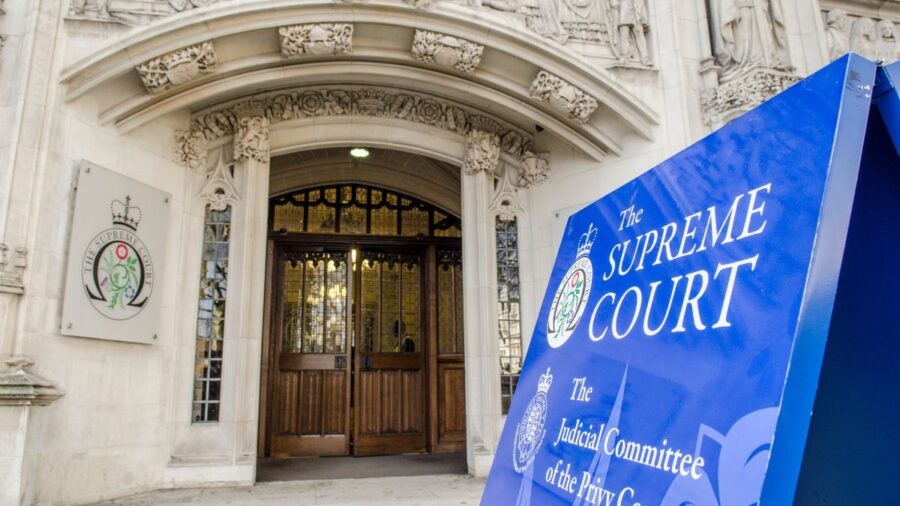
Last week, the Supreme Court ruled that the legal definition of a woman in equality law is based on biological sex. The decision means that legally, sex is binary and should only refer to a biological man or woman.
For HR leaders, the decision has left a lot to unpack. “In the short-term this ruling has the power to create further division and increase tensions,” warns Phillip Pepper, employment partner at law firm at Shakespeare Martineau.
The gender debate has become incredibly divisive and Pepper advises employers take “extra care to ensure that transgender employees feel safe, represented and valued in the workplace”.
Some companies have moved quickly to do so. Andrew Walton, chief corporate affairs director at Lloyds, posted a message of support to the bank’s trans and non-binary staff, according to reports from The Telegraph.
“Please know that we cherish and celebrate you and we remain committed to inclusivity,” he wrote. “If you’re a line manager, please be mindful of the potential impact on members of your team and be available to them. We are here to listen and support.”
Lloyds’ chief people and places officer Sharon Doherty also pledged her “solidarity”. Sandi Wassmer, CEO of Employer’s Network for Equality and Inclusion says that such messages of support from senior leadership can help people feel psychologically safe at work and encourage open communication.
How should HR respond?
Employers should use this moment to reassert their commitment to creating an inclusive workplace culture. She adds: “For those affected by this ruling, employers should seek to provide support groups or other safe spaces for them to voice concerns, and signpost to wellness and mental health initiatives.”
While the Supreme Court ruling narrows the legal definition of sex under the Equality Act, protections for trans people are in no way eroded by this change. Sex and gender reassignment remain protected characteristics under the Act, as well as protections against direct and indirect discrimination and harassment.
The message to HR is stay informed, stay compassionate and don’t make assumptions
Georgina Calvert-Lee, a barrister at specialist employment law firm Bellevue Law, advises HR leaders to resist any knee-jerk responses. She says: “Many HR professionals are feeling the pressure to respond swiftly but sensitively. The key right now is not to rush into policy changes without first understanding the scope of the ruling.”
Some of the more pressing implications of the ruling revolve around single-sex spaces, such as toilets and changing rooms. Guidance for employers has yet to be issued. Providing some unisex facilities may be “the only realistic option” to avoid discriminating against transgender employees, according to Calvert-Lee.
“Further clarification is still needed on how this interacts with the practical realities of gender identity in the workplace,” she adds. “For now, the message to HR is stay informed, stay compassionate and don’t make assumptions.”
HR now must strike a balance between legal compliance and inclusion. Although the Supreme Court ruling offers greater clarity in some legal areas it also raises further questions for employers, particularly in regards to women-led initiatives, leadership programmes and gender pay gap reporting.
Kelly Tucker, founder and managing director of consultancy HR Star, says: “The question now is not simply one of compliance but of leadership. How do we honour legal obligations without compromising the inclusive cultures we’ve worked hard to build?”
This article originally appeared in the CHRO Memo. Sign up for weekly insight into the biggest trends and issues shaping the HR profession here.


Last week, the Supreme Court ruled that the legal definition of a woman in equality law is based on biological sex. The decision means that legally, sex is binary and should only refer to a biological man or woman.
For HR leaders, the decision has left a lot to unpack. “In the short-term this ruling has the power to create further division and increase tensions,” warns Phillip Pepper, employment partner at law firm at Shakespeare Martineau.
The gender debate has become incredibly divisive and Pepper advises employers take “extra care to ensure that transgender employees feel safe, represented and valued in the workplace”.





